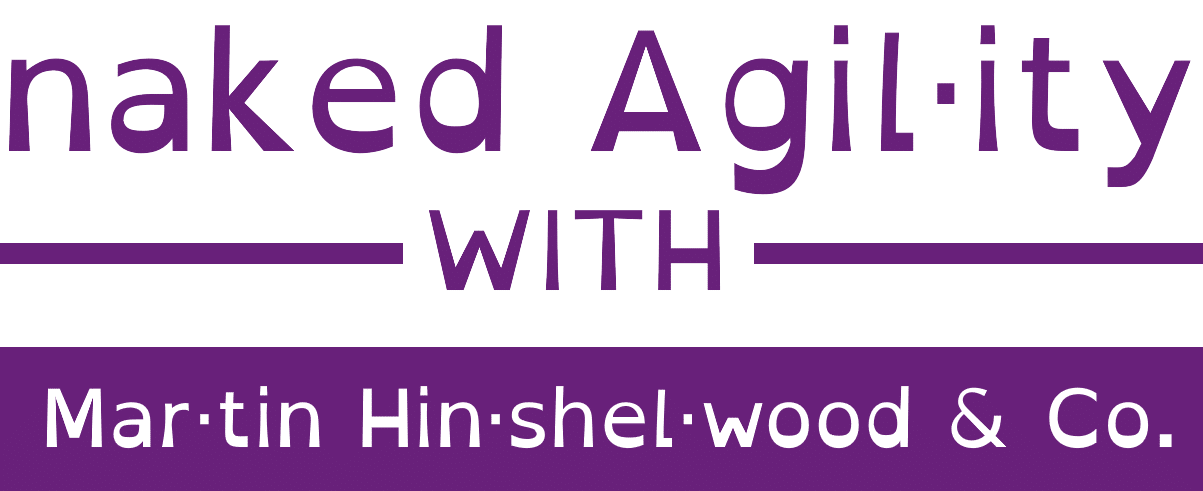What we think!
Featured Insights – Find out what we think about topics through Case Studies, Articles, Blog Posts, Videos, and Podcasts
by Martin Hinshelwood
https://youtu.be/l3NhlbM2gKM Unraveling the Story Point Myth in Scrum: A Path to Clarity 🚀 Hello, Agile practitioners! Today, I’m tackling a pervasive myth that has become a common stumbling block in Scrum teams: the Story Point Conundrum. This myth often manifests …
by Martin Hinshelwood
https://youtu.be/7O-LmzmxUkE Demystifying Scrum: Beyond Meetings to Meaningful Events 🚀 Hey there, Agile enthusiasts! Today, I’m tackling a pervasive myth that’s been haunting the corridors of Scrum practice: the belief that Scrum equals endless talking and not enough doing. It’s a …
by Martin Hinshelwood
https://youtu.be/vhBsAXev014 Steering Through the Agile Apocalypse: Navigating Chaos 🌪️ Hello, Agile navigators! Today, I dive deep into the tempest that is chaos—one of the seven ominous signs of the agile apocalypse. It’s a storm that brews in the midst of …
by Martin Hinshelwood
https://youtu.be/FdQpGx-FW-0 Escaping the Judgment Trap in Agile Transformation 🚀 Hey there, Agile adventurers! Today, I’m tackling another harrowing harbinger of the agile apocalypse: Judgment. This formidable foe manifests through prescriptive, one-size-fits-all methodologies that strangle creativity and innovation. It’s a world …
by Martin Hinshelwood
https://youtu.be/UeisJt8U2_0 Navigating the Plague of Incompetence in Agile Coaching 🚧 Hey Agile warriors! Today, I’m diving into a topic that stirs up quite the storm in the Agile realm—the plague of incompetence among Agile coaches and Scrum Masters. Yes, you …
by Martin Hinshelwood
https://youtu.be/W3H9z28g9R8 Conquering Famine in Agile Organizations: A Blueprint for Success 🚀 Hello, Agile enthusiasts! Today, I’m diving into a topic that resonates deeply with many of us in the Agile world—famine. No, not the kind you’re thinking of, but rather …
by Martin Hinshelwood
https://youtu.be/wHGw1vmudNA Navigating the Treacherous Waters of Conflict: The Second Harbinger of the Agile Apocalypse The agile journey, while transformative, is fraught with challenges, one of which is the specter of conflict. Dubbed the second harbinger of the agile apocalypse, conflict, …
by Martin Hinshelwood
https://youtu.be/56hWAHhbrvs Navigating the Agile Apocalypse: Overcoming the Alpha Organizational Structure In the quest for agility within organizations, one formidable adversary stands out, often referred to as the “Antichrist of Agile.” This adversary is none other than the Alpha organizational structure—the …
by Daryn Basson NKDAgility.com
https://youtu.be/vubnDXYXiL0 Tailoring Scrum to Scale: Building Your Own Framework for Success Scaling Scrum within an organization presents unique challenges and opportunities. While there is no one-size-fits-all course that teaches you how to scale Scrum, there are courses available that equip …
by Daryn Basson NKDAgility.com
https://youtu.be/c0ncdBixyfo Overcoming the Culture of Contempt in Agile Teams In the realm of product development, especially within Agile and Scrum teams, a disturbing trend often emerges—a culture of contempt. This sentiment extends from leadership to the company, the product, and …
by Suzanne
https://youtu.be/QI3oE9IUc6E How effectively does an APS prepare a team to do a solid, professional Scrum? The APS Advantage: Exploring Professional Scrum Mastery Navigating the Scrum world, it’s impossible not to acknowledge the weight of the Applied Professional Scrum (APS). 🚀 …
by Suzanne
https://youtu.be/221BbTUqw7Q Scrum’s True Potential: A Journey Through the APS Immersive Class In the evolving landscape of Scrum, nothing quite stands out like the Applied Professional Scrum (APS) immersive experience. ✨ This course has significantly shaped my understanding and approach to …
by Joshua 스크람 Partogi nkdAgility.com
https://www.youtube.com/c/jpartogi/feed
by Martin Hinshelwood
https://youtu.be/sAKCLQ38GzA The Power of Purpose: How ‘Start with Why’ Drives Agile Success In the world of Agile and Scrum, the concept of starting with ‘why’ is pivotal. Simon Sinek’s insightful exploration of this idea demonstrates its crucial role in motivating …
by Martin Hinshelwood
https://youtu.be/RBZFAxEUQC4 Unravelling the Lust of Agile: Why There’s No Quick Fix in Transformation In a world where rapid market evolution is the norm, many organisations find themselves facing the 70-year itch, desperately seeking a solution in Agile transformations. But is …
by Martin Hinshelwood
https://youtu.be/2ASLFX2i9_g Mastering Agility: Steering Clear of the Gluttony Trap in Agile and Scrum 🌟 In the Agile realm, ‘gluttony’ extends beyond mere overconsumption. It’s a metaphor for the excessive accumulation of backlogs and products, often paralysing the agility of teams. …
by Martin Hinshelwood
https://youtube.com/shorts/V88FjP9f7_0 Embracing ‘Less is More’ in Agile: Maximising Value, Minimising Waste 🚀🌟 In the world of Agile and Kanban, the mantra ‘less is more’ isn’t just a catchy phrase; it’s a core principle that drives efficiency and value. The Agile …
by Martin Hinshelwood
https://youtu.be/U18nA0YFgu0 Addressing Wrath in Agile Teams: From Blame to Accountability 🌪️🛠️ In the dynamic world of Agile, wrath often lurks in the shadows, manifesting as an intolerance for mistakes and a culture of blame. This can severely impede the growth …
by Martin Hinshelwood
https://youtu.be/BDFrmCV_c68 The Peril of Pride in Agile: A Cautionary Tale Pride, in moderation, fuels our drive for quality and achievement. However, in the Agile world, there’s a thin line between healthy pride and its excessive, blinding counterpart. This post navigates …
by Martin Hinshelwood
https://youtu.be/PmMqrL42FUg Confronting the Sin of Sloth in Agile Practices: A Call for Honesty and Action Sloth in Agile is not just about being lazy; it’s a deeper issue of failing to fulfil promises and commitments within Agile frameworks. Understanding Sloth …
